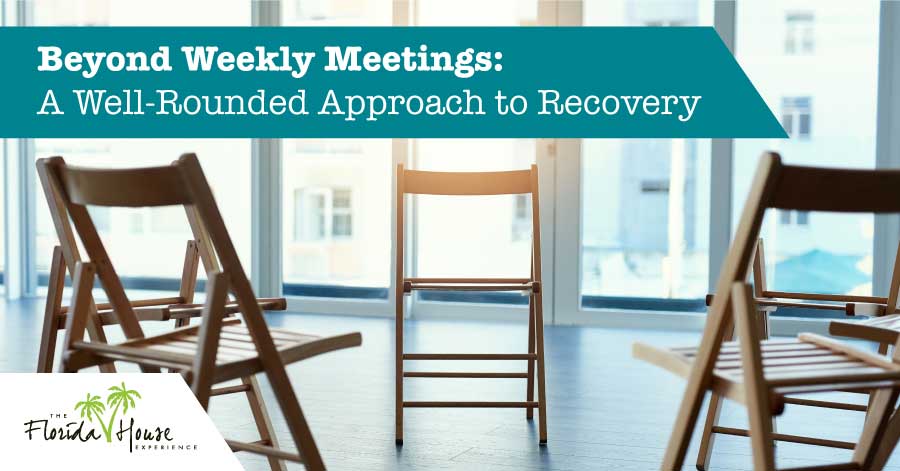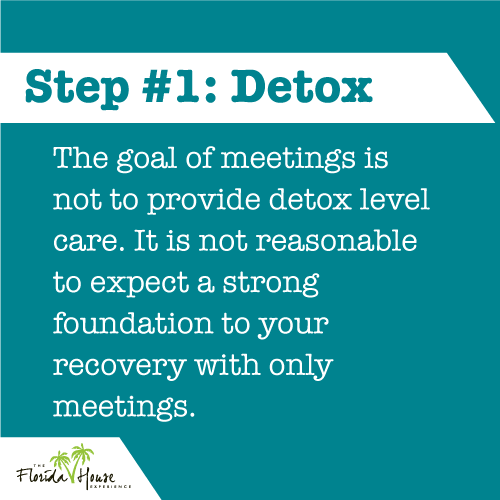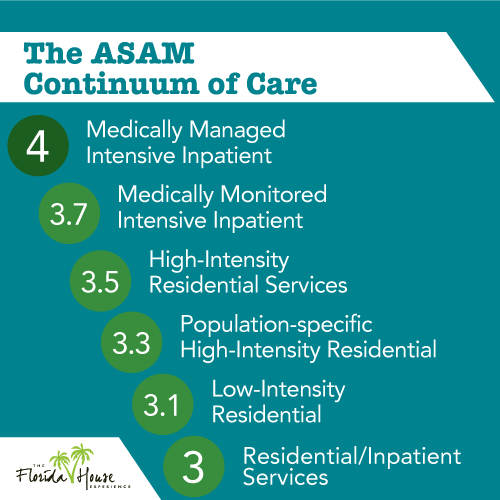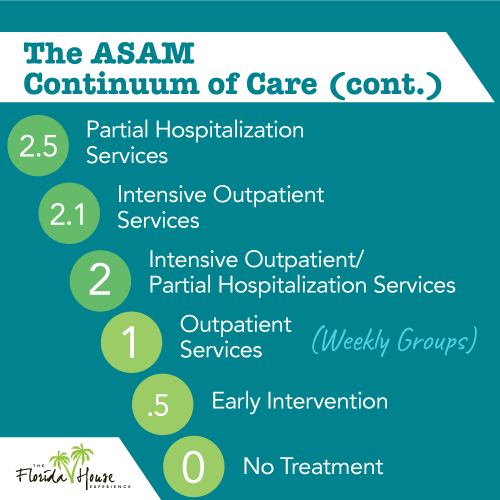
Getting help in dealing with addiction can be complicated. First, there are practically endless options. According to the National Institute on Drug Abuse, there are around 14,500 rehab centers operating at any given time. These include inpatient programs, outpatient programs, detox, weekly meetings and many, many more. The point is that “rehab” can look very different for different people.
NIDA also claims that the gold standard in treatment is programs that allow patients to detox under medical supervision and then receive treatment over a substantial period of time, citing a positive correlation between time spent in treatment and recovery outcomes. But many addicts, whether they’ve already tried to get sober and failed or not, simply say, “I’ll go to a few meetings and get clean.” Is this even possible, and if so, how effective is trying to get sober with weekly meetings alone?
Detox Is a Crucial Step to Recovery
 The first reason why meetings like AA, NA and other established groups can’t be relied upon to provide comprehensive treatment is that it’s simply not the goal of these programs to give patients access to the foundations of recovery.
The first reason why meetings like AA, NA and other established groups can’t be relied upon to provide comprehensive treatment is that it’s simply not the goal of these programs to give patients access to the foundations of recovery.
If you compare addiction to say, an organ transplant, it’s a bit easier to understand. Addiction treatment is like the transplant itself, and weekly meetings are like the medication used for years after the transplant occurs to ensure that it isn’t being rejected by the body. Without substantial addiction treatment, weekly meetings have little effect.
Detox is a big reason for this. Effective treatment involves medically assisted detox, meaning that addicts are given a path to sobriety that starts with getting clean under supervision from medical experts. While there are outpatient “detox” facilities, they don’t compare to residential stay where detox is the start of a longer process.
This is reflected in NIDA’s Principles for Effective Treatment, a best practices guide for getting results out of rehab. Basically, NIDA says that medically assisted detox is an important part of recovery, but on its own, there’s only a small chance that it will yield sustainable results.
Introducing the Continuum of Care
In the early 2000s, the American Society of Addiction Medicine (ASAM) developed what’s known as the continuum of care for addiction treatment as an attempt to standardize the way the treatment community talks about services offered. Basically, the continuum involves offering different levels of care and attention during rehab based on the needs of a single patient.
This allows comprehensive treatment facilities an advantage that weekly meetings just can’t provide: the ability to treat every aspect of addiction based on unique considerations specific to any given patient.
The Value of Gradual Change

For example, in a treatment center, a patient often undergoes medically assisted detox first. This can be a difficult process, because withdrawal from certain types of addiction can be substantially difficult, both physically and emotionally.
Residential treatment facilities have the unique advantage of offering multiple steps along the continuum, making recovery more accessible. The patient is able to live in a controlled setting after they get clean, receiving care from skilled providers. Gradually, they can transition from full-time treatment to part-time care that slowly becomes a smaller part of their life.
Getting Access to Comprehensive Support

The reason for this is that treatment in a rehab facility tries to uncover the root causes of a person’s tendency to use substances as a coping method or a way of escaping their reality. Cognitive behavioral therapy and other cutting-edge psychoanalytical therapies allow the patient to understand themselves better and give them tools that they can then take into group and 12-step meetings to be a better contributor to the sobriety of the group.
The Value of Meetings
It’s not that meetings don’t work. It’s more that the person who says “I have a problem, maybe I’ll go to a few meetings to fix it” isn’t making the commitment needed for total recovery. According to The Fix, a publication focused on addiction medicine and related issues, research that attempted to understand the success rate of AA and NA found that it wasn’t necessarily the program that decided a patient’s success but the level of commitment to their recovery that they exhibited.
This may have something to do with how we look at addiction compared to other chronic diseases. Relapse is looked at as a sign of weakness or ineffective treatment with addiction, but when we actually look at the numbers, they show something different.
Relapse rates for addiction treatment are actually lower than rates for other diseases, including hypertension (high blood pressure) and asthma. Here’s the difference: When a person has one of these chronic health problems, they’re more likely to make a commitment to get better, no matter what it takes. Why isn’t it always like this with addiction?
The Bottom Line
More often than not, people who try to get clean using weekly meetings aren’t putting their recovery first, which significantly lowers the success rate of any treatment program, especially over a long enough time.
Combined with the fact that meetings don’t have access to some of the tools that exist in comprehensive rehabs, it’s clear that trying to have sustainable recovery using meetings alone is doing a disservice to your long-term health.
If you or a loved one is struggling with addiction, learn about all of your options, beyond the ones that seem the easiest or most manageable. FHE Health can help you make the commitment to improve your life and take the first steps toward lifelong recovery.






